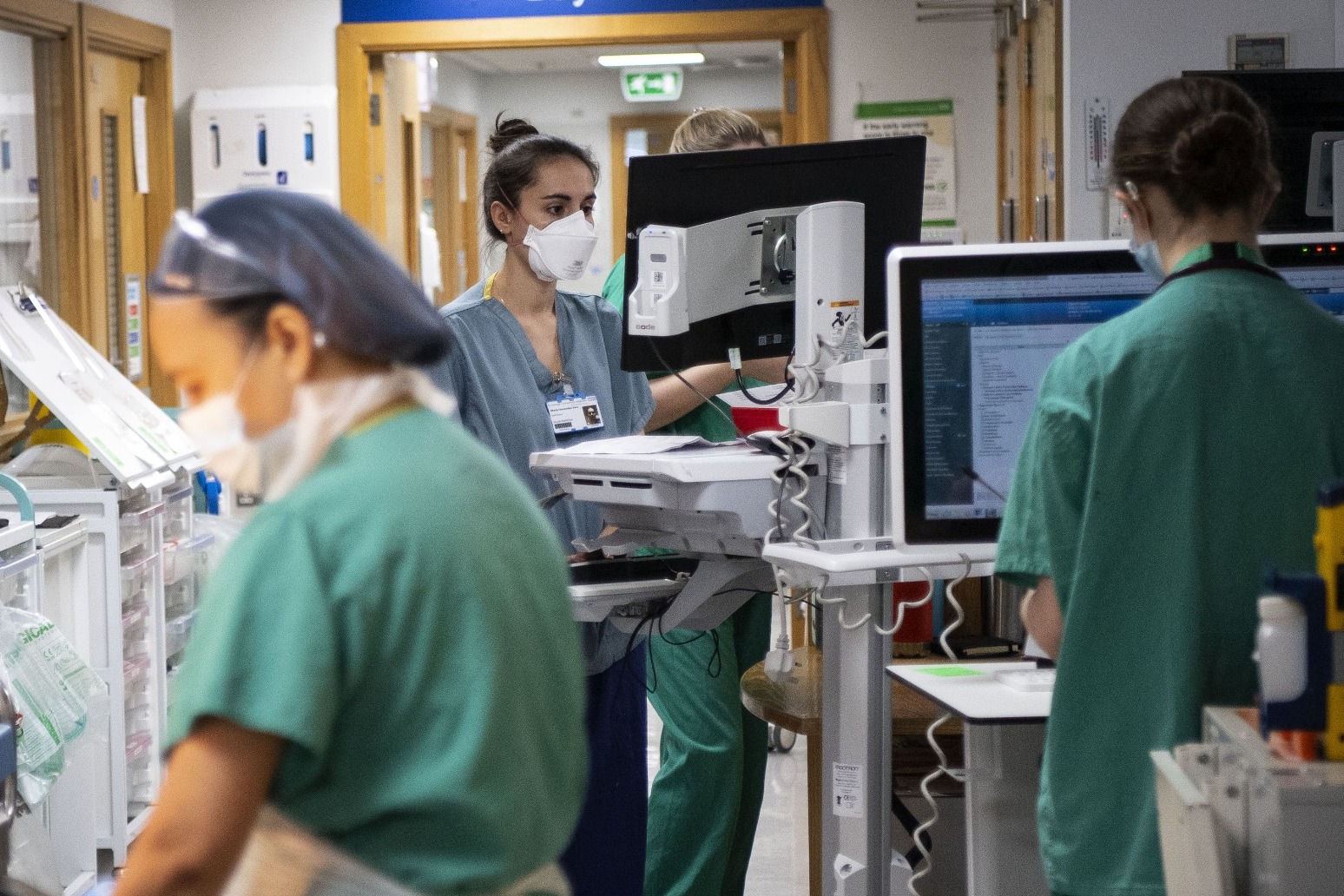
Patients need to be treated as ‘more than a number’ say nurses’ leaders
NHS patients should be treated as “more than a number on a waiting list”, leading nurses have said.
Commenting on new figures which show dozens of patients in England have been waiting for more than three years for hospital care, the Royal College of Nursing said that “patients will pay the price” as a result of a shortage of nurses.
The College said NHS data from 2021 showed there were almost 40,000 nursing vacancies in England as it called for concrete action to address widespread nursing shortages.
Meanwhile, Age UK raised concerns that older people risk being “left behind” if the health service chooses to treat “low hanging fruit” patients first.
And Healthwatch England said that more must be done to improve information about how long patients should be expected to wait for their care.
RCN England director Patricia Marquis said: “On behalf of patients, we are telling the government ‘enough is enough’.
“The nursing shortages they refuse to address add to treatment delays with some patients even dying earlier.
“Millions of people are waiting for life-changing treatment and deserve to be treated as more than a number on a waiting list. They and nursing need to know there is a clear staffing plan to deliver safe, timely patient care.
“Long before the pandemic, there were tens of thousands of nursing vacancies across health and social care. Until ministers can keep experienced nurses and bring in enough new recruits, patients will continue to pay the price.”
Caroline Abrahams, Age UK’s charity director, said: “Unfortunately, this information confirms that some patients are likely to have to wait a long time for the operation or treatment they need.
“Even if these cases are classified as ‘non urgent’ that still means that many people will be living in considerable pain and discomfort, with their ability to do normal things impeded to at least some degree.
“It’s a miserable outlook, however hard the NHS works to provide people with good support, including crucially effective pain relief, while they wait in the queue.
“The added problem for older people is that they do not have time on their side.
“In clearing the backlog, the NHS must prioritise people based on their needs. At Age UK we are concerned that older people are at risk of being left behind if the ‘low hanging fruit’ is chosen first, in the form of people whose cases seem easiest to resolve, because they are more likely to be younger in age.”
Louise Ansari, national director of the patient champion Healthwatch England, added: “It’s no secret the NHS faces enormous pressures and creating the capacity to tackle the backlog of care will not happen overnight.
“This is why NHS and social care services must focus on ensuring people’s experience while they wait for treatment is as good as possible, providing all the necessary support and getting people in the best shape for surgery.
She continued: “People are incredibly understanding of the current situation. Still, services need to do more to improve communication and support to make waiting for those in pain more bearable and reassure them that they won’t have to wait years to get the care they need.”
NHS leaders said that hospitals are making “solid progress” in addressing the backlog of care, including by carrying out more than 1.24 million procedures in a single month.
Responding to information obtained by the PA news agency on patients suffering from long waiting times to receive treatment, Matthew Taylor, chief executive of the NHS Confederation, said: “NHS leaders do not want any patient to have to wait longer than they have to for their planned surgeries, which is why they have been so frustrated by the ongoing impact of coronavirus and the various obstacles that are interfering with their ability to tackle the backlogs.
“They and their teams are doing everything they can and are making solid progress, including by carrying out 1.24 million urgent and non-urgent procedures in a single month.”
He added: “Where capacity is particularly stretched they are looking at how they can pool their resources across different services to identify patients who may be able to be treated sooner.
“It is right that the NHS is held to account for its performance and its leaders are committed to putting the additional investment to best use for patients, but the pressures linked to Covid, the social care crisis and the significant workforce vacancies are not going to be solved by this Government overnight so we need a healthy dose of realism about what the NHS will be able to deliver in return.”
A Department of Health and Social Care spokesperson said: “We know the NHS has been under unprecedented pressure, that’s why we set out our plan to tackle the Covid backlog and deliver long term recovery and reform backed by our record multi-billion pound investment.
“This will deliver new surgical hubs and up to 160 community diagnostic centres across the country to help patients get the surgery they need and earlier access to tests, delivering an extra nine million scans, checks and procedures by 2025.”
Published: by Radio NewsHub